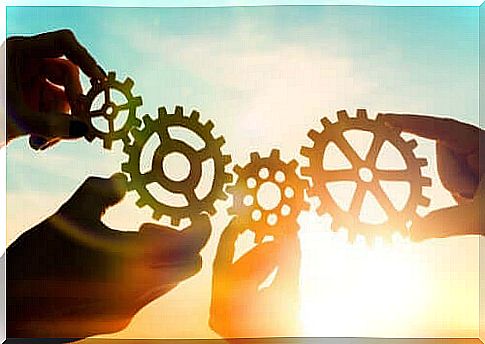The Characteristics Of Human Development

Human development is a socially constructed concept, loaded with ideological content and cultural connotations. All societies in the world actually strive for progress, according to their own conception of well-being.
Human development implies progress in people’s living conditions. So, by definition, there are no “developed” and “undeveloped” stages. Instead, all people and all societies are moving forward, going backwards or coming to a standstill. Many people view human development as an inexhaustible process.
Despite this, people often fall into semantic contradictions, such as the distinction between “developed countries” and “developing countries.” The purpose of this article is to analyze one of the variants of this concept: human development.
People understand human development as a multidimensional concept. They see human development as an inalienable human right.

The conceptual development
The concept of human development is relatively recent. It dates from the mid-twentieth century. Over the course of six decades of debate, the concept has changed from a one-dimensional (economic) view to a multi-dimensional (economic, social, political, cultural, and environmental) view.
The conception of development as a process of structural change emerged after World War II. Development was the transformation process through which countries moved from a traditional (agricultural) economy to a modern (urban and industrial) economy. This approach was measured by the pace of income growth.
However, this purely economic conception of development has a number of problems, namely:
- First, it is assumed that economic growth increases the general well-being of society. It is also believed that economic growth increases the general wealth of society and trickles down from the higher incomes (those that generate investment and receive the bulk of the benefits from growth) to the lower incomes.
- Second, there is a tendency toward “historical determinism,” derived from the assumption that progress consists in reproducing the experiences of developed countries in countries that have fallen further behind. Thus, they see industrialization as the “universal path” to economic progress. As you can see, they see economic growth as the ultimate goal of development and not as a means of improving people’s living conditions.
Economy
As you can see, a number of economists have begun to criticize the prioritization of economic growth in development strategies. They argued that it is necessary to promote social and political change to improve well-being. So, neither industrialization nor economic growth is a viable welfare strategy. That is, unless they are accompanied by redistributive measures.
People are beginning to understand human development as a multidimensional concept. They are even starting to use other indicators to measure well-being, not just income.
As a result, the Human Development Index (HDI) came into existence. This index makes it possible to measure progress in three dimensions:
- health (life expectancy at birth)
- education (average and expected number of school years)
- standard of living (national income per capita)
This index has proved very useful because it has made it possible to summarize the complex multidimensional information on human development in a single indicator. He has therefore proved particularly attractive to the media and public opinion.

Human development today
After six decades of debate over doctrines, people understand human development as a “process of increasing people’s freedom to live healthy, long and creative lives, to achieve the goals they care about, and to participate actively.” participate in shaping development in a sustainable and equitable way on a shared planet” (UNDP).
Thus, people are both beneficiaries and motivators of human development, both collectively and individually.
As you can see, development is seen as a process that is shaped by people and for the benefit of people. Therefore, human development policies should be designed in a participatory manner and their benefits should be redistributed.
Ultimately, it comes down to dealing appropriately with the major conflicts that arise in a growing community, within a finite and shared world.









